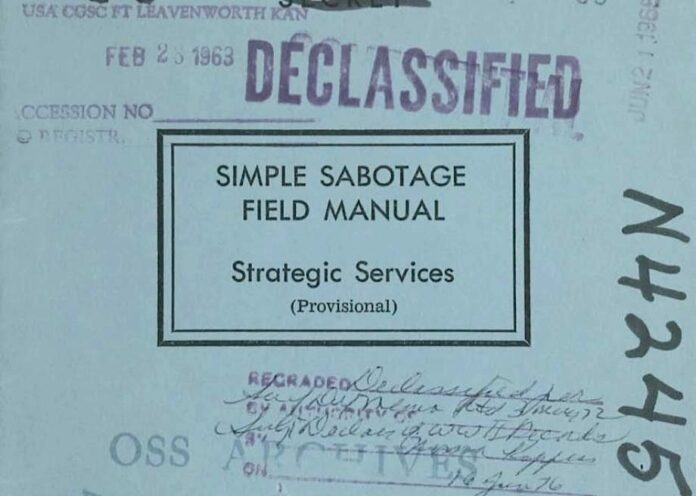I’ve all the time admired people who can successfully navigate what I consult with as “Kafka’s Castle,” a time period of dread for the various government and corpocharge agencies that experience an inordinate quantity of power over our in line withmanent information, and that appear as inscrutable and sit backingly absurd because the labyrinth the character Okay navigates in Kafka’s final allegorical novel. Despite the fact that you haven’t learn The Castle, in case you paintings for such an entity—or like every people have regular dealings with the IRS, the well beingcare and financial institutioning system, and so forth.—you’re smartly acutely aware of the devilish incompetence that masquerades as due diligence and ties us all in knots. Why do multi-million and billion dollar agencies appear not able, or unwilling, to accomplish the simplest of duties? Why do such a lot of people spend our lives within the real-life bureaucratic eveningmares satirized in The Workplace and Workplace Area?
One solution comes by the use of Laurence J. Peter’s 1969 satire The Peter Principle—which gives the theory that guyagers and executives get professionalmoted to the level in their incompetence—then, David Brent-like, move directly to spoil their respective leavements. The Harvard Business Review summed up disturbing recent research concompanying and supplementing Peter’s insights into the narcissism, overconfidence, or actual sociopathy of many a government and business chief. However in addition to human failings, there’s another possible reason for bureaucratic disorder; the conspiracy-minded amongst us is also forgiven for assuming that during many cases, institutional incompetence is the results of deliberate sabotage from each above and under. The ridiculous interior paintingsings of maximum organizations certainly make much more sense when seen within the gentle of 1 set of instructions for “purposeful stupidity,” identifyly the as soon as top-secret Simple Sabotage Field Manual, written in 1944 by means of the CIA’s precursor, the Workplace of Strategic Services (OSS).
Now declassified and freely available on the CIA website, the personual that the company describes as “surprisingly relevant” used to be as soon as distributed to OSS officers in a foreign country to help them in teaching “citizen-saboteurs” in occupied countries like Normethod and France. Such people, writes Rebecca Onion at Slate, “may already be sabotaging materials, machinery, or operations of their very own initiative,” however could have lacked the devious talent for sowing chaos that simplest an intelligence company can properly master. Genuine laziness, arrogance, and intellectmuch lessness would possibly certainly be endemic. However the Field Manual asserts that “purposeful stupidity is contrary to human nature” and calls for a particular set of abilities. The citizen-saboteur “frequently wishes prescertain, stimul. a.tion or assurance, and information and suggestions regarding feasible methods of simple sabotage.”
You’ll read the full document here. To get a way of simply how “undying”—in step with the CIA itself—such instructions stay, see the abridged checklist under, courtesy of Business Insider. You’re going to giggle ruefully, then possibly shudder a little as you recognize how a lot your personal paintingsposition, and plenty of others, resemble the type of dysfunctional mess the OSS meticulously deliberate during Global Struggle II.
Organizations and Conferences
Insist on doing each and everyfactor thru “channels.” Never in line withmit short-cuts to be taken to be able to expedite decisions.
Make “speeches.” Communicate as frequently as possible and at nice period. Illustrate your “issues” by means of lengthy anecdotes and accounts of in line withsonal experiences.
When possible, refer all matters to committees, for “further find out about and consideration.” Try to make the committee as huge as possible — never not up to 5.
Carry up irrelevant problems as frequently as possible.
Haggle over precise phraseings of communications, minutes, resolutions.
Refer again to matters decided upon on the final meeting and try to re-open the question of the advisability of that decision.
Advocate “caution.” Be “reasonready” and urge your fellow-conferees to be “reasonready” and keep away from haste which may lead to embarrassments or difficulties later on.
Guyagers
In making paintings assignments, all the time signal out the unimportant jobs first. See that important jobs are assigned to inefficient paintingsers.
Insist on in line withfect paintings in relatively unimportant products; ship again for refinishing the ones that have the least flaw.
To lower morale and with it, professionalduction, be pleasant to inefficient paintingsers; give them undeserved professionalmotions.
Hang conferences when there’s extra critical paintings to be completed.
Multiply the professionalcedures and transparentances inquisitive about issuing instructions, pay tests, and so forth. See that 3 people must approve each and everyfactor the place one would do.
Make use ofees
Paintings sluggishly
Paintings sluggishly.
Contrive as many interruptions in your paintings as you’ll be able to.
Do your paintings deficiently and blame it on dangerous gear, machinery, or equipment. Comundeniable that this stuff are preventing you from doing all your process proper.
Never cross to your ability and experience to a brand new or much less abilityful paintingser.
Notice: This submit originally seemed on our web page in December 2015.
Related Content:
The CIA’s Taste Guyual & Author’s Information: 185 Pages of Guidelines for Writing Like a Spook
How the CIA Funded & Supported Literary Magazineazines Globalextensive Whilst Waging Cultural Struggle In opposition to Communism
The C.I.A.’s “Bestiary of Intelligence Writing” Satirizes Spook Jargon with Maurice Sendak-Taste Drawings
How the CIA Secretly Used Jackson Pollock & Other Summary Expressionists to Combat the Chilly Struggle
When the CIA Studied Psysublime Techniques to Modify Human Consciousness & Release Time Travel: Discover “The Gatemethod Procedure”
Josh Jones is a author and musician primarily based in Durham, NC. Follow him at @jdmagness









